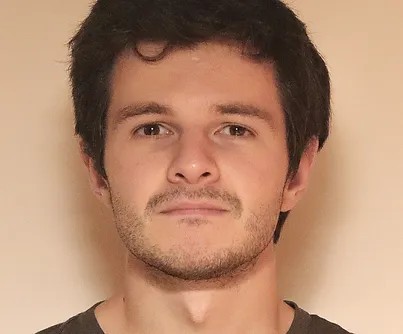Laboratory vision
The Machine Learning and Computational Science Laboratory focuses on generating new machine learning algorithms , with a strong focus on geometric deep learning, neural networks and applications to computational science.
We strive to develop algorithms that harness the power of geometric deep learning techniques, enabling machines to understand and reason about complex spatial and structural data. By leveraging the inherent geometry in these datasets, our algorithms will empower machines to extract meaningful patterns and make accurate predictions, leading to new applications in diverse domains, including computer vision, natural medicine, and physics.
We are also committed to addressing the challenge of implicit biases in machine learning systems. By developing interpretable algorithms, we aim to uncover and mitigate biases, ensuring responsible and fair AI deployment.
Meet the Team

Assistant professor
Fabio Anselmi
Fabio received the B.S. and M.S. degrees in theoretical physics from the University of Padova, and the Ph.D. degree in quantum physics from Hertfordshire University, UK. He was an Assistant Professor at the Baylor College of Medicine in Houston, Texas.He is currently Assistant Professor at the University of Trieste, Italy. His research focuses on developing new machine learning algoritms, in particular deep learning architectures with applications to computational neuroscience, physics and medicine. Together with Tomaso Poggio, one of the founding fathers of AI, he published the book "Visual Cortex and Deep Networks: Learning Invariant Representations".

Phd (with Luca Bortolussi)
Lorenzo Basile

Phd (with Luca Bortolussi)
Emanuele Ballarin
Research Interests and Projects
The Lab's interests lie in machine learning, in particular artificial neural networks, with applications to computational neuroscience, physics and medicine.
The Lab's current research focuses on:
– Design and develop new machine learning algorithms adapted to data-priors.
– Understand the implicit computational bias of different neural networks architectures and its impact on adversarial examples and interpretable
features.
– Applications of neural networks to neuroscience in particular the analysis of visual cortex neuronal responses (invariant and equivariant representations).
-Design of new machine learning algorithms for biomedical data (macular degeneration).
-Physics informed machine learning algorithms with applications to quantum information and computation.
Recent Publications
L.Basile, N. Karantzas, A. d'Onofrio, L. Bortolussi,A. Rodriguez, F. Anselmi
Relating Implicit Bias and Adversarial Attacks through Intrinsic Dimension.
arXiv:2305.152023
F. Anselmi, M.Castelli, A d'Onofrio, L. Manzono, L.Mariot,M. Saletta
Local Search, Semantics, and genetic Programming: a Global Analysis.
arXiv:2305.16956
F. Anselmi* et al., "Data Symmetries and Learning in Fully Connected Neural Networks," in IEEE Access, 2023.
E. Besier*, N. Karantsaz*, A. Patel, A. Tolias, F. Anselmi. Learning important Fourier features of a neural network’s input reveals its computational bias,
Frontiers in Machine Learning and Artificial Intelligence, 2022.
B.Franceschiello*, T. Di Noto*, A. Bourgeois, M. M.Murray, A. Minier, P. Pouget, J. Richiardi, P. Bartolomeo, F. Anselmi, Convolutional neural networks on eye tracking trajectories classify patients with spatial neglect, Computer Methods and Programs in Biomedicine, 2022.
